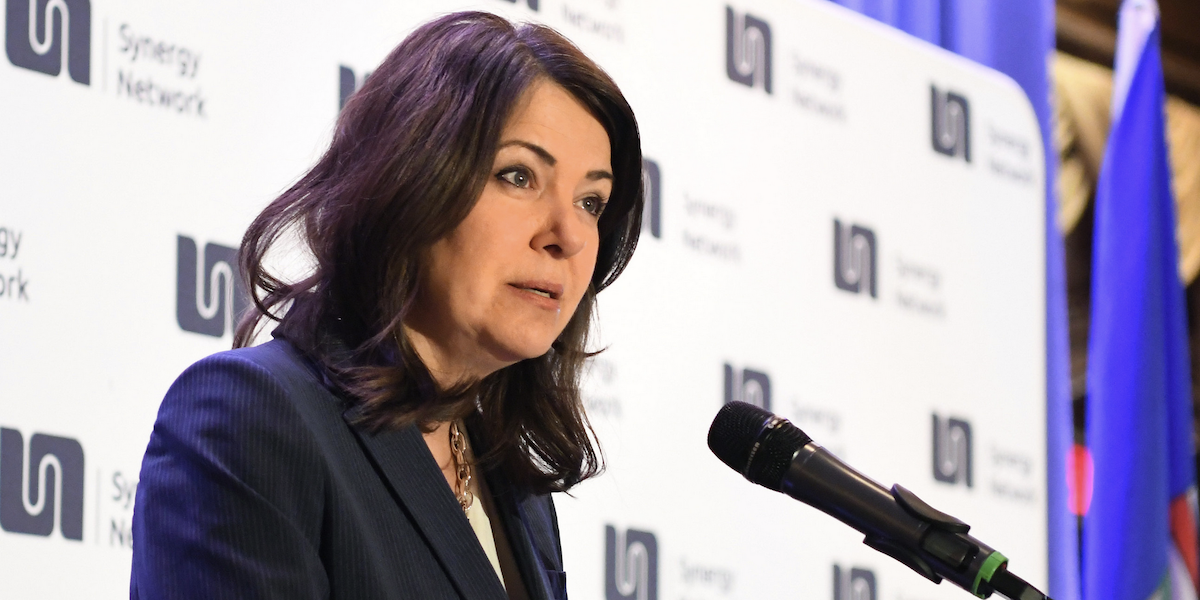Let’s cut right to the chase: What the analysis made public yesterday by the Chief Actuary of Canada shows is that if Alberta were to split from the Canada Pension Plan (CPP) it would only be entitled to 20 to 25 per cent of the CPP investment fund, or about $120 billion to $150 billion.
In other words, the 2023 report by the Lifeworks consulting firm commissioned and heavily promoted by the United Conservative Party Government that concluded Alberta would be entitled to walk away with 53 per cent of the $575-billion investment fund, about $334 billion, turns out to be just as it appeared, too good to be true.
So the complaint by Alberta Finance Minister Nate Horner’s spokesperson that “we received their interpretation of the legislation, but it did not contain a number or even a formula for calculating a number” turns out to be not completely accurate.
Yes, the government received the report. And, yes, the report didn’t do the math for readers. Nevertheless, upon reading it, Alberta Finance Department experts should have had no difficulty coming up with the conclusions above.
Now that the Office of Chief Actuary Assia Billig has publicly released the report, Alberta voters can read it for themselves. Its title may not be all that riveting, but the conclusions of Chief Actuary Position Paper – Subsection 113(2) of the Canada Pension Plan are both clear and persuasive.
Section 113(2) of the legislation that created the Canada Pension Plan, by the way, “outlines the calculation that the Minister of Finance shall apply in determining the amount that would be transferred to the Government of Alberta,” the position paper explains. So figuring out what it means, quite literally, is the money question!
A very helpful commentary was posted yesterday afternoon on social media by University of Calgary economics professor Trevor Tombe, who is cited in the report as being one of many experts Billig’s staff consulted who reached similar conclusions.
In particular, the report pointedly endorses the conclusion published by Dr. Tombe in December 2023, that the LifeWorks estimate of Alberta’s entitlement was wrong, and the right number is in the 20- to 25-per-cent range.
If the same approach were applied to both Alberta and Ontario, Dr. Tombe noted in that 2023 paper, “then it would result in more assets being paid out than actually exist within the CPP.” Needless to say, such an outcome would not just strain Confederation, it would be politically impossible in Canada outside of Quebec, which with its own grandfathered pension has no dog in this fight.
“The Chief Actuary’s position, although independently developed, is consistent with the findings of the IAP and the method presented in Dr. Tombe’s paper,” the position paper states – the IAP being the Independent Advisory Panel of actuaries created by her office to gather independent views.
While it may not seem completely reassuring, it is said here the Finance Minister’s press secretary can probably be forgiven for not properly understanding the position paper, which, while clearly written, requires a certain level of actuarial expertise not typical of political staffers.
Anyway, the Chief Actuary sided with the majority of experts when it came to rejecting the LifeWorks claim the province would be entitled to as much interest as it would have collected if it had set up its own pension plan in 1966.
This does not mean the UCP’s pension scheme is not viable, Dr. Tombe noted in his Bluesky commentary, but it does indicate the much smaller contribution rates claimed by the government are not possible.
Responding to a commenter, Dr. Tombe concluded that “reading carefully the various pieces of analysis now publicly available would lead to the conclusion that the LifeWorks interpretation will not withstand careful judicial review.” This is an opinion, but obviously a well-informed and important one.
Mount Royal University political science professor Duane Bratt weighed in on Bluesky with the opinion that “the Smith government will quietly abandon the APP when there is a change in the federal government. The APP rears its head when there are Liberals in Ottawa, and buries its head when the Conservatives are in office.”
I am not so sure. The UCP brain trust has been singularly focused on the huge sums that could become available to prop up Alberta’s oil and gas sector if it got its paws on CPP assets, so don’t expect this divisive scheme to go away any time soon.



